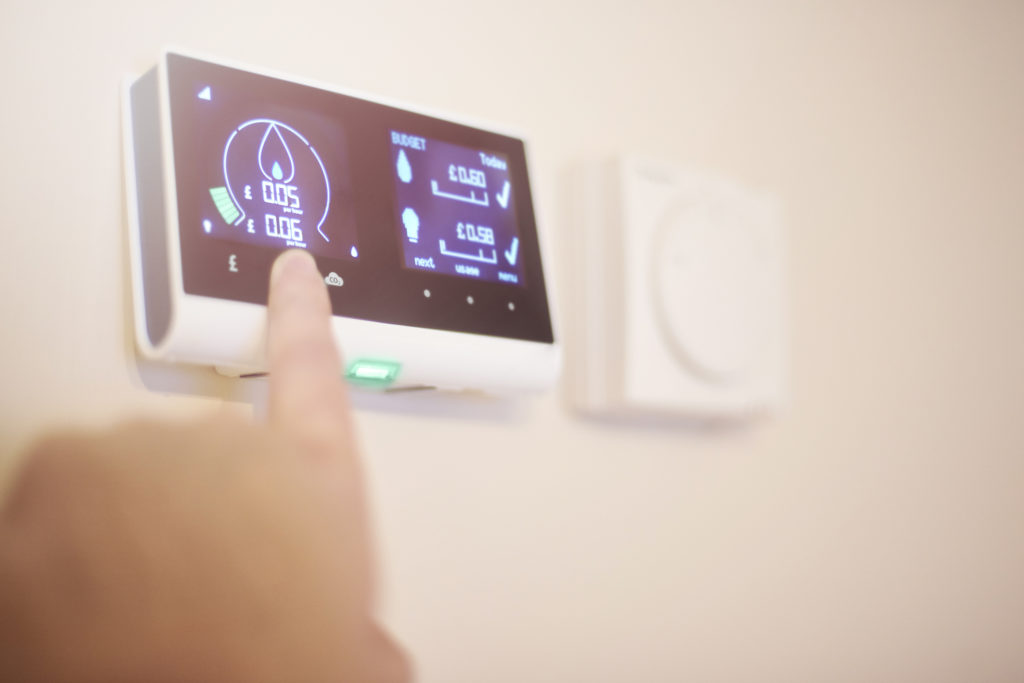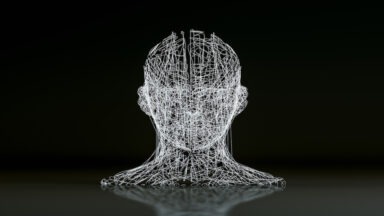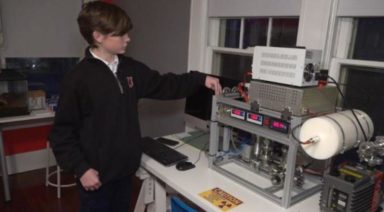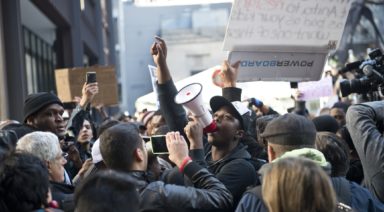Is Your Smart Speaker Spying On You?

Those personal assistants everyone seems to be getting for their home are convenient voice-activated tools for an increasing number of tasks. But when Alexa and Google Home are constantly recording and uploading your voice to the cloud, a third-party server, you could potentially be exposing yourself to hackers, government intrusion, and corporate spying. Are these legitimate concerns or paranoid conspiracy?
Amazon Echo and Alexa
By now, almost everyone is familiar with Amazon’s voice-command personal assistant, Alexa – arguably better than Siri, but not quite as intuitive as HAL 9000, though that’s probably for the best. Since the technology was introduced in 2014, a number of iterations from Amazon and Google have been created to put smart speakers in the homes of every consumer.
These speakers are able to play your favorite song, order pizza, activate other smart devices, and maintain your calendar. But some of the other conveniences they can handle involve personal data, like locating your phone, accessing bank account information, and calling your loved ones. All of this is accomplished by having a microphone ready to start recording at any given moment.
These days, new technological advents are a double-edged sword; they’re increasingly convenient, but also increasingly intrusive. That microphone recording your request to order take-out is also uploading it to a cloud server; a third party that is able to do what it wishes with that information.
Now, it would require a lot of data storage to record and save everything, all the time, so the device waits for a wake word to start listening. Your recording is then sent to the cloud to be translated by voice recognition software.
Amazon calls this the Alexa Voice Service, or AVS, which one can access and use to build your own voice assistant with a single-board computer like Raspberry Pi. That’s why the basic versions of the technology, like the Amazon Dot, that don’t include a Bluetooth speaker, can provide the technology so inexpensively; it’s basically just a microphone that sends your voice recordings to software in the cloud.

So, if the technology is that simple, doesn’t that leave it vulnerable to hackers? Yes, it does. In fact, there have been several different successful hacks that have forced Amazon to warn users of design flaws and vulnerabilities.
On Amazon’s pre-2017 technology, one programmer created a malware code that could be installed on Alexa-enabled devices to make it stream recorded conversations directly to his computer. This program was installed by physically removing the rubber bottom and soldering a connection between the device’s internal hardware, an SD card reader, and his laptop.
Though this particular connection would have been blatantly obvious to the person whose device was tapped, he said he would be able to create a 3D-printed plate that could be easily planted and go unnoticed with more time and development.
Amazon’s response? Don’t buy one of their devices from a third party. This might be the only advice needed for most consumers, but for those unfamiliar with the technology, they may be unwittingly spied on in public places where Amazon products are starting to be planted. Last year, the Wynne hotel in Las Vegas announced it would put Echoes in all of its rooms, while Amazon is adamantly targeting other hotel groups to do the same.
But that wasn’t the only instance of someone finding a security flaw in one of these speakers. Hackers have found a way to translate voice commands into high-frequency pitches able to be heard by Alexa but not by you – kind of like a dog whistle. Again, to use this hack you must be close to the speaker, though it’s much more reticent than having to install something.
While just about anything can be hacked by someone with enough know-how, there have been cases in which these devices have been recording everything as soon as they were turned on, straight from the factory. One tech blogger found his Google Home mini-speaker was recording and uploading his conversations without him saying the wake word. Google has since fixed this design oversight, but it goes to show just how easily it could “accidentally” happen.
Can Government Subpoena Your Voice Assistant?
The technology has only been available for a few years and already the police have tried to acquire a warrant to access recordings from one of these always-on devices. In a case in Arkansas, police sought access to an Amazon Echo in the home of a man convicted of murder.
The company refused to hand over the information and told police that there wouldn’t even be anything there unless the wake word was used to activate the device. Eventually, the defendant agreed to allow the police access to the Echo, from which they found no incriminating evidence, and the case was dropped.
But it wasn’t just the Amazon smart speaker that the police and prosecution hoped to find evidence in, it was also his smart water meter. Prosecutors pointed to a large amount of water used between 1-3 a.m., the time it was thought the defendant hosed down his porch to clean off blood from the victim. The defendant said the am/pm function wasn’t accurate and that he used that much water 12 hours earlier to fill the hot tub.

It’s this level of detail that our web of smart devices can unwittingly tell others about our activity. The use of a smart electric meter can even be used to see what television programs we’re watching by matching electricity fluctuations with the brightness of the screen. Essentially, each program creates a unique power signature, that can be matched to monitor your television habits.
Because these devices are recording data and uploading it to a third-party server, it can be made public or sold to advertisers who can calculate your habits with metadata. It’s unclear whether this type of intrusive data collection is actually being employed by many companies, but it’s highly likely. And as more and more of our appliances become part of the Internet of Things or IoT, every time you use them, data will be mined and analyzed in order to monitor your behavior.
The ACLU has proposed a set of rules and regulations that should be adhered to by law enforcement and other third parties for the protection of consumer privacy, though they haven’t been written into any legislation yet. It seems that unless we figure out a way to prevent the sharing of all this personal information from the use of smart utilities, we may be offering up access to every minute detail of our lives.
Did the Philadelphia Experiment Really Happen?

The World War II-era is notorious for mysterious Nazi experiments involving weapons and strange esoteric technology. But the U.S. also conducted its fair share of tests on new and nefarious weaponry and wartime tactics. Some of the most famous minds of the time, including Nikola Tesla and Albert Einstein, were even employed to execute the military complex’s will, occasionally leading to some perplexing stories.
One of the more bizarre accounts involves the supposed attempt of the Navy to develop a technology that could make an entire ship invisible to the naked eye. But these experiments had some unintended consequences that led to the project being shut down and buried until a man who claimed to have worked on the project blew the whistle on its cover-up. The stories that ensued became the inspiration for a 1980s, sci-fi movie and the Netflix series, Stranger Things, but could these stories actually have some validity to them?
The Philadelphia Teleportation Experiment
A man named Al Bielek is a central figure in these stories and his account has been ridiculed as simply being contrived nonsense, but the historical context and his detailed narrative are intriguing and possibly part of a true story, shedding light on clandestine government operations, one of which was known as the Philadelphia Experiment.
According to Bielek, in the late 1930s, the Navy was working on a project using electromagnetism to essentially develop an invisibility cloak for its warships. Around that time, Bielek said that Einstein was directing a program of degaussing ships by wrapping them in electromagnetic coils, to protect against magnetic mines planted by the Nazis. Tesla purportedly took this technology and parlayed it into the cloaking experiment, having some initial success with a small boat. After failed attempts with larger ships, Tesla gave up and the project was handed over to Dr. John von Neumann, who also worked on the Manhattan Project.
Von Neumann eventually succeeded in making the U.S.S. Eldridge, a Cannon-class destroyer escort, invisible for a short period of time on the first occasion. According to Bielek, one of Tesla’s inventions, a Zero Time Reference Generator, lent itself to this success. This device supposedly locks the Earth’s magnetic fields and acts as a cosmological reference with the electromagnetic fields at the center of the galaxy.

The USS Eldridge, involved in the Philadelphia Experiment
Bielek said that Tesla gave von Neumann a cryptic warning about a “personnel problem” that might occur in their experiment, but he continued anyway and the Navy trained a crew specifically for the operation. Then on August 12, 1943, they ran a second test. After being shrouded in a “green, ozone-laden haze” the ship purportedly disappeared for several hours, during which it traveled through time and then rematerialized. Upon its return, sailors were reported to be violently ill, some engulfed in flames, and others molecularly bonded with the ship. Bielek, however, said he and his brother, who was aboard the ship at the time, jumped off during the time warp and remained in 1983 on Montauk, Long Island at another secretive government facility also experimenting with time travel, known as the Montauk Project.
Bielek gives an intriguing explanation for how his time travel was possible, relating to Tesla’s Zero Time Generator. He said that Tesla’s device was the key for the ship to return back to its original location. According to Bielek, we live in a five-dimensional reality, with time being the fourth and fifth dimensions. He said that every human is given a set of locks that lock them in a point of time from which they came, but that the experiment ruptured those time references, upon returning to Philadelphia.





































